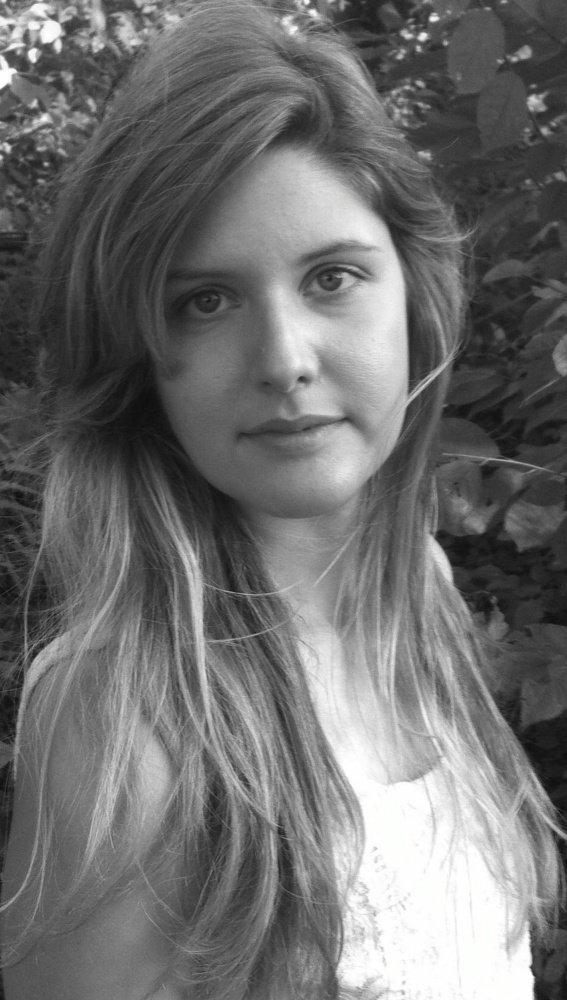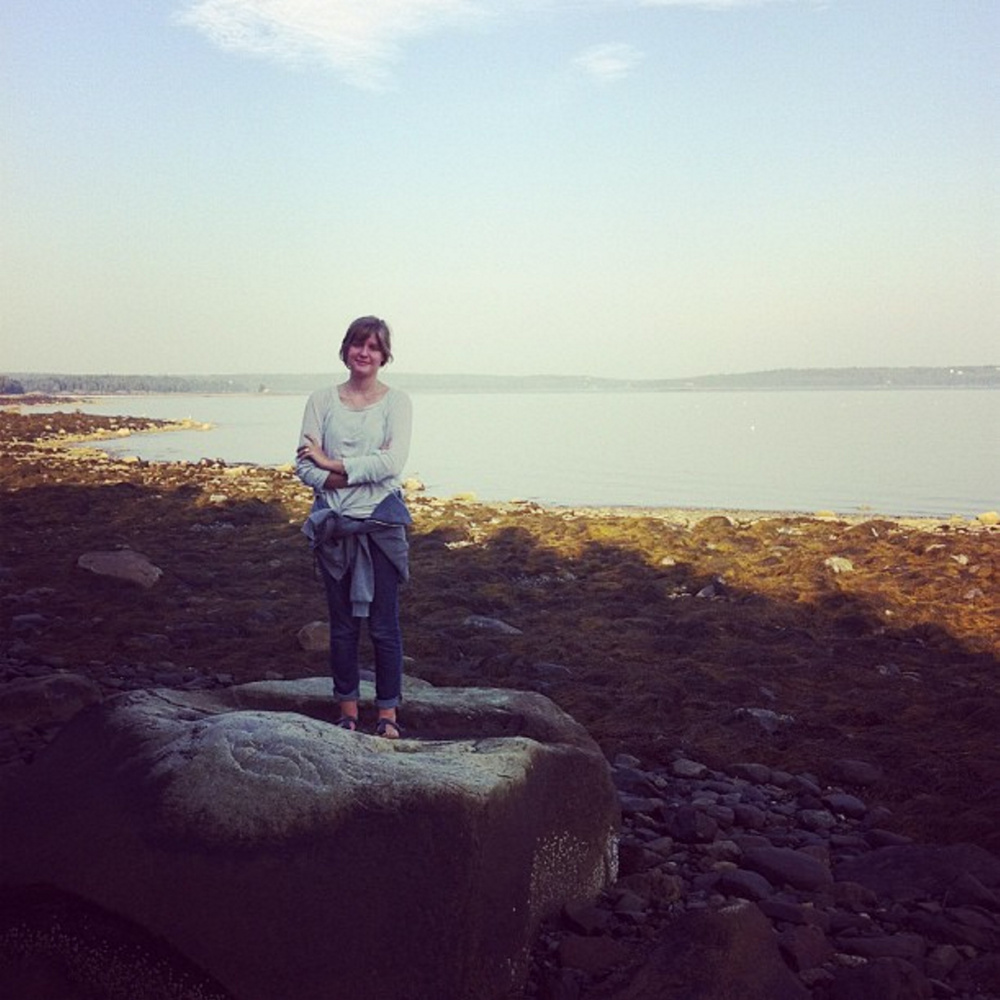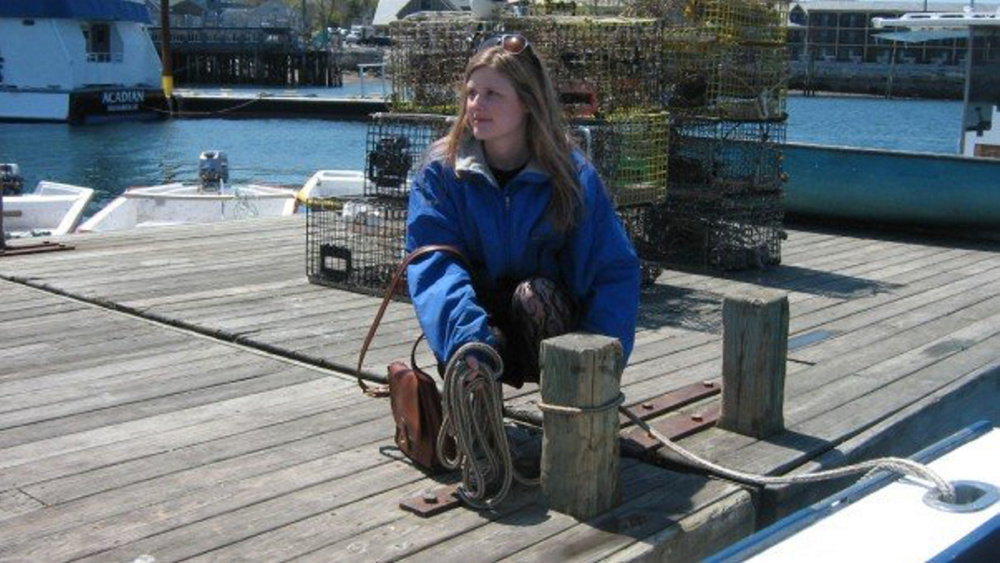“I gravitate toward things that are a little more … grumpy,” writer Anna Noyes says. She was speaking of her decision to relocate from her native coastal Maine to far more gritty New York, which always had an allure for her. But she might have been referring to the tenor of “Goodnight, Beautiful Women,” a debut collection of short stories, most set in the darker, tourist-free corners of Maine, that landed her on a recent Wall Street Journal list of “up-and-coming authors.”
It’s uncanny how well Noyes taps into the places – both emotional and geographic – where young girls excuse wrong touches by their fathers and babysitters and quarries are filled with the ominous, from used needles to abandoned cars and vanished lovers.
“They are very dark stories,” Noyes says. “I didn’t really set out to write darkness for darkness’ sake or anything. But if there is darkness, it is reflective of darkness I had seen and experiences of women or girls that I had known about from some distance, that existed in the real world.”
Noyes grew up in Sorrento, a Hancock County town of 274 (that’s the year-round population – in the summer it swells to about 1,000) which she jokes is “primarily made up of my family.”
There are no stores or stoplights, and a trip to a Hannaford means a 30-minute drive to Ellsworth. “In the winter you walk down the middle of the iced-over street and not see a single car,” she said. The surrounding landscape, “the dark islands and the foxes that shriek in the night,” has found its way into her work.
In “Treelaw,” the second story in the collection, a shopkeeper leans over the counter to remark of a 3-year-old, “Isn’t she cunning?” while the child’s mother, having come up short at the register, debates between a whoopie pie for the daughter or a lottery scratch card for her boyfriend. It’s a Maine that evokes no sense of pride – even that vaunted independence of spirit seems less defiant and more like necessity in the face of abandonment – but feels distinctly true to where we live.
When Noyes returned to Maine after completing her graduate work at the Iowa Writer’s Workshop, she found to her surprise that, as fertile as her home state had been for her imagination, being here physically didn’t prove the right ground for smoothing out the edges of what would become “Goodnight, Beautiful Women.”
“I had a lot of ideas about the romanticism of returning to Maine,” Noyes said. “I thought the isolation would be very productive and pull wonderful things from me.”
She’d won the Henfield Prize for Fiction at Iowa, which gave her $10,000 to pay for lots of rice and beans and the winter rent on a house in Blue Hill, overlooking the bay. She also took a part-time job at the Blue Hill library, shelving books. Although it paid $8.95 an hour, it was a dream job. “I wish I could do it all the time.” (Nearly as appealing: her internship before Iowa at McSweeney’s, where her duties included browsing the slush pile, “like unwrapping Christmas presents.”)
As a writer though, she felt stuck. Her new stories didn’t resonate and her edits weren’t working. What she describes as her “low-key, slow and quiet temperament” dropped into an even lower register. There were “a ton of naps,” she laughed.
A BOOK GROWS IN BROOKYLN
The momentum picked up as soon as she moved down to New York, specifically Brooklyn, two years ago.
“Even though everything is so ratcheted up and fast-paced, that ups the ante and is really invigorating for me,” she said. “Most of my best work has been done under pressure, and coming here, I feel pressure every day.”
Many of the first drafts of stories in “Goodnight, Beautiful Women,” were written over the course of a week or even just a sleepless night. She’d write in short, furious bursts before a deadline at Iowa, sending herself almost into a trance from lack of food and lack of sleep. That could provide an emotional buffer in case the stories weren’t well received during the workshop process.
“I can trick myself into thinking, I was up all night writing so of course it is sort of incoherent and strange.”
She intended, when she first relocated to New York, to get a job in publishing. “That’s the only career I feel capable of, other than writing,” she said. After about five promising interviews at big publishing houses, she still hadn’t landed anything. “Everybody had a great CV,” she said ruefully.
Then a couple of the stories she’d sent to literary magazines came out, including one in Guernica told in the voice of a chimpanzee named Lucy. Editors reached out to her agent and, within a month, she had a book contract. The job search has been put on hold while she works on a novel.
“That advance just gave me a moment to breathe,” she said. “This is a bit of a riskier choice, but even though I know I can’t live just from selling books, I really wanted to take the time to try to write this novel.”
In contrast to her short story production, novel writing is “a mysterious process.… It all feels like something I don’t have a handle on,” she said. “It is harder to have the faith to work on it in a really diligent persistent kind of way.”
“That said, I am ready for something more sprawling,” she added.
ALL IN THE FAMILY
Writing runs in her family. Anna’s mother, Elizabeth Noyes, to whom the book is dedicated, is a former journalist who has written two novels, as yet unpublished and more in the vein of, say, Anne Tyler than “Goodnight, Beautiful Women,” Anna Noyes said. Her grandfather was the editor of the Washington Evening Star and her grandmother, Beatrice “Beppie” Noyes, published two children’s books, “Mosby, the Kennedy Center Cat” and “Wigglesworth: The Caterpillar Who Wanted to Fly,” that she wrote and illustrated.
“They were very sweet,” Noyes said of her grandmother’s books. “It’s funny, she writes about dew on the grass and things like that. But she was a bit more of a ferocious personality. And I present pretty sweet, so people are surprised to know that there is so much darkness teeming inside me.”
She began to find her writerly voice at the Putney School in Vermont, where an influential teacher remarked that she was protecting every character. “He said, ‘You need to hurt them and you need to risk hurting yourself,’ ” she said. Since then she’s aimed to find that edge of threat, the one that jeopardizes her characters.
Though some of her published work is not included in the collection (the Lucy story is not), “Goodnight, Beautiful Women” represents 10 years of writing. The title story was written while she was at Putney. Many of the 11 stories in the collection deal with the sexuality of young girls and women, in a deliberately realistic way, in opposition to what Noyes calls the typically “prettified versions” one sees in books. Her aim was to be as direct and frank about women’s bodies as she could.
“What happens to those bodies is not always safe,” she said. “That is something that felt true to me and true to the experiences of women and girls I have known.”
Some of this is very hard to read (as The New York Times review put it “the stories may sound grim, but they consistently sparkle with expressive detail”), and Noyes knows it.
“Some people can read the stories without finding any redemptive quality,” she said. “To me, in my reading and writing of it, I feel like the characters are left with love for each other and some possibility for forward motion and hope.”
“I don’t mean that I think the characters will pull themselves up by their bootstraps and have a new life,” she added. “But having been very, very close to people like the characters in many of these stories, even if things happen, even like overdosing, I think there is still an enormous amount of strength and courage and humor. I don’t want these characters to come across as cardboard cutouts of failure. I would like to show the human dimensions of these characters. That they can be robbing homes and be ferocious mothers who mother vigilantly.”
Although she’s been cast as a Maine writer (the book jacket describes her as “raised in Downeast Maine”) she said she doesn’t think of herself as such. For her, Maine fictions are the ones she grew up reading and watching, whether it was a Stephen King novel or TV movies set in Maine. “They are always saying ‘Storm’s a brewing,’ ” she said. Or the novels of Susan Minot, where the world of summer wealth imbues the state with a sort of romanticism.
“I find that seductive,” she said, but not real, at least not year-round. “I wish Maine could be like that.”
Send questions/comments to the editors.






Comments are no longer available on this story